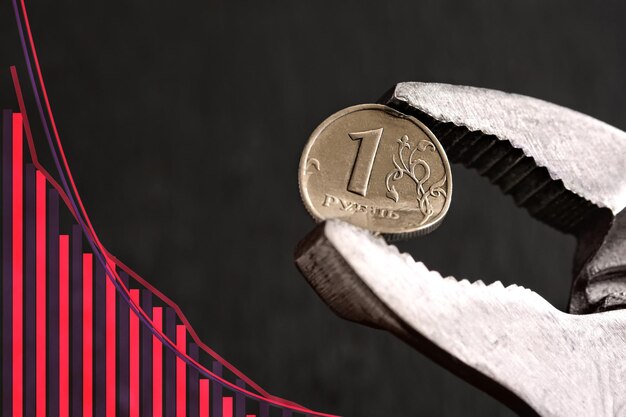Top 10 Crypto Exchanges & Apps for Buying Bitcoin in April 2024
In today’s fast-paced digital era, where technological advancements are revolutionizing every aspect of our lives, it is crucial to stay updated on the latest trends and tools for managing your valuable virtual assets. Whether you are an avid investor or simply someone curious about the world of cryptocurrencies, this article is designed to equip you with the knowledge and insights you need to navigate the ever-evolving landscape of digital currency applications.
Experience the power of innovative solutions that unleash the true potential of your digital wealth. With an array of ground-breaking cryptocurrency applications at your disposal, you have the opportunity to take control of your financial future like never before. These apps offer a seamless and secure platform for buying, selling, and managing your digital assets, ensuring you can make informed decisions and optimize your investments.
Discover a plethora of features that cater to all your needs, whether you are a beginner looking for user-friendly interfaces or an experienced trader seeking advanced tools for technical analysis and trading strategies. From real-time market data and portfolio tracking to secure storage of private keys and easy integration with hardware wallets, these apps provide a comprehensive range of functionalities tailored to the diverse requirements of cryptocurrency enthusiasts.
Understanding the Importance of Cryptocurrency Management
Recognizing the significance of effectively managing your digital currency holdings is of utmost importance in the ever-evolving world of cryptocurrencies. Ensuring proper oversight and organization of your virtual assets can pave the way for successful and secure digital transactions.
Acknowledging the Value: Cryptocurrency management encompasses the careful handling and control of your digital financial resources. This entails overseeing the buying, selling, and storing of cryptocurrencies, with the primary goal of maximizing profits and mitigating potential risks.
Embracing Security Measures: The management process involves implementing robust security measures to safeguard your assets against cyber threats, including hacking attempts and data breaches. Establishing encrypted wallets, utilizing two-factor authentication, and staying updated on the latest security practices are key components in protecting your cryptocurrency investments.
Monitoring Market Trends: A crucial aspect of effective management is to remain vigilant and stay informed about the latest market trends and developments in the cryptocurrency world. This includes keeping an eye on fluctuating prices, identifying potential investment opportunities, and strategizing accordingly to optimize your asset portfolio.
Optimizing Profit Potential: Through strategic management, you can actively work towards maximizing your returns on cryptocurrency investments. This involves regularly assessing and adjusting your investment portfolio, capitalizing on favorable market conditions, and diversifying your holdings to minimize potential losses.
Ensuring Regulatory Compliance: Proper cryptocurrency management is closely intertwined with adhering to the relevant legal and regulatory frameworks governing digital assets. Abiding by tax regulations and financial reporting requirements is essential to prevent complications and potential legal ramifications down the line.
By understanding the importance of cryptocurrency management and implementing effective strategies, you can navigate the fast-paced world of digital assets with confidence and optimize the potential of your investments.
Choosing the Best Cryptocurrency Apps for Your Needs
In the realm of digital finance and blockchain technology, the selection of the perfect cryptocurrency apps can be a daunting task. With a multitude of options available, it is crucial to find the app that caters to your specific needs, ensuring optimal management and security of your digital assets. This section aims to guide you through the process of selecting the ideal cryptocurrency apps by considering various factors and features that should be taken into account. By making an informed decision, you can confidently navigate the world of cryptocurrencies and streamline your digital asset management experience.
Understanding Your Requirements
Before diving into the vast sea of cryptocurrency apps, it is essential to have a clear understanding of your requirements and goals. Are you a casual investor looking for a simple interface, or are you a professional trader who needs advanced charting tools and real-time market data? Consider factors such as user experience, security features, supported cryptocurrencies, available trading pairs, and additional functionalities like portfolio tracking and news updates. By determining your specific needs, you can narrow down the options and focus on the apps that align with your objectives.
The Key Considerations
To assist you in the decision-making process, here are key considerations to evaluate when choosing cryptocurrency apps:
- Security: The security measures implemented by the app should be top-notch, including encryption, two-factor authentication, and cold storage options. Ensure that the app follows industry best practices to safeguard your digital assets.
- Usability: A user-friendly interface and an intuitive design will enhance your experience and simplify the management of your cryptocurrencies. Look for apps that provide easy navigation, clear explanations, and a hassle-free setup process.
- Supported Cryptocurrencies: Some apps might only support popular cryptocurrencies like Bitcoin and Ethereum, while others offer a wide array of options. Consider the cryptocurrencies you intend to trade or hold and ensure that the app supports them.
- Trading Features: If you plan to actively trade cryptocurrencies, look for apps that provide robust trading features, such as real-time price charts, order books, trading indicators, and limit/market orders. These tools can assist you in making informed trading decisions.
- Exchange Connectivity: Check if the app integrates with reputable cryptocurrency exchanges to facilitate seamless trading and portfolio management. The ability to connect multiple exchanges through a single app can save time and effort.
- Customer Support: Having reliable customer support can be invaluable when encountering issues or needing assistance. Look for apps that offer responsive customer support channels like live chat, email, or phone, ensuring prompt resolution of any problems.
By carefully considering these factors and conducting thorough research, you can identify the best cryptocurrency apps that cater to your unique requirements. Remember that the perfect app for one person may not be suitable for another, so make sure to choose one that aligns with your specific needs and preferences.
Securely Storing Your Digital Assets with Cryptocurrency Wallets
In this section, we will explore the importance of securely storing your digital assets and how cryptocurrency wallets can help you protect your investments. Managing your digital currencies requires careful consideration of security measures to safeguard your funds from unauthorized access and potential theft.
Understanding the Importance of Secure Storage
Safekeeping your digital assets is crucial in the world of cryptocurrencies. As virtual currencies are intangible and exist solely in digital form, the risk of cyber threats and hacking attempts necessitates the adoption of robust security measures. Secure storage of your digital assets mitigates the potential risks associated with unauthorized access, loss, or theft.
One of the most effective ways to protect your digital assets is through the use of cryptocurrency wallets. These wallets function similarly to traditional wallets, allowing you to store, send, and receive cryptocurrencies. However, unlike physical wallets, cryptocurrency wallets do not store your digital assets physically but securely store your private keys, which are crucial for accessing your funds.
Selecting the Right Cryptocurrency Wallet
When it comes to choosing a cryptocurrency wallet, you have various options available. Let’s explore some popular types:
- Hardware Wallets: These wallets offer the highest level of security by storing your private keys offline. They are physical devices that provide enhanced protection against online threats.
- Software Wallets: Software wallets can be further subdivided into desktop wallets, mobile wallets, and online wallets. Desktop wallets are installed on your computer, mobile wallets on your smartphone, and online wallets are web-based platforms.
- Paper Wallets: Paper wallets involve printing your private and public keys on paper and securely storing them. This offline method provides another layer of security.
Regardless of the type of wallet you choose, it is essential to prioritize security features such as two-factor authentication, backup and recovery options, and encryption protocols. Regularly updating your wallet’s software and keeping your private keys offline are additional precautions that can enhance security.
Remember, the security of your digital assets is in your hands. By selecting the right cryptocurrency wallet and adopting appropriate security measures, you can confidently store and manage your digital assets without constantly worrying about potential threats.
Tracking Your Investments and Portfolio Performance
In the fast-paced world of cryptocurrency investments, it is crucial to have a robust system in place for tracking your investments and managing your portfolio’s performance. Keeping a close eye on your digital assets allows you to make informed decisions and maximize your returns in this ever-changing market.
Why Tracking Your Investments Matters
Tracking your investments is essential for several reasons. Firstly, it provides you with a comprehensive overview of your financial position, enabling you to assess your current holdings and make strategic investment decisions. By monitoring the performance of different cryptocurrencies, you can identify trends and patterns, ultimately helping you to optimize your investment strategy.
Tools for Managing and Monitoring Your Portfolio
Thankfully, there are numerous user-friendly apps and platforms available to help you track your investments and monitor your portfolio’s performance. These tools provide real-time updates on the value of your assets, portfolio allocation, and historical performance. Some even offer advanced features like price alerts and customizable charts to help you visualize your portfolio’s growth.
- Portfolio Tracking Apps: These apps allow you to import your cryptocurrency holdings, automatically calculate their value, and track changes in real-time. They provide a comprehensive overview of your portfolio’s performance, including gains, losses, and overall return on investment.
- Price Alert Services: Price alerts keep you informed of significant price movements, ensuring that you never miss an opportunity. You can set custom alerts for specific cryptocurrencies, price thresholds, and market conditions, allowing you to react swiftly to market fluctuations.
- Performance Analysis Tools: These tools help you assess the historical performance of your investments. They provide detailed insights into your portfolio’s growth over time, allowing you to analyze past trends and identify potential areas for improvement.
In summary, effectively tracking your investments and monitoring your portfolio’s performance is crucial for success in the world of cryptocurrency. By utilizing the right tools and staying informed, you can make data-driven decisions and adapt your strategy as the market evolves.
Exploring Cryptocurrency Exchanges for Trading and Investing
In this section, we delve into the exciting world of cryptocurrency exchanges, where you can trade and invest in various digital assets. These platforms provide the necessary infrastructure to buy, sell, and exchange cryptocurrencies, offering you the opportunity to capitalize on the ever-growing crypto market.
When it comes to exploring cryptocurrency exchanges, you’ll encounter a diverse range of platforms, each with its unique features and offerings. Some exchanges are designed for beginners, providing user-friendly interfaces and simplified trading options, while others cater to experienced traders, offering advanced tools and analytical capabilities.
One of the prominent aspects of cryptocurrency exchanges is their ability to facilitate both trading and investing activities. Trading involves actively buying and selling assets in the market, aiming to profit from short-term price fluctuations. On the other hand, investing typically involves a longer-term approach, where individuals hold onto their assets with the expectation of growth over time.
It’s important to consider factors such as security, reputation, supported cryptocurrencies, fees, liquidity, and user experience when exploring cryptocurrency exchanges. Some exchanges may have more extensive coin offerings, while others specialize in specific digital assets. Additionally, varying fee structures can significantly impact your profitability, so it’s crucial to evaluate the fee models of different platforms.
Furthermore, liquidity plays a vital role in the efficiency of trading on an exchange. Higher liquidity ensures that there are enough buyers and sellers in the market, enabling smooth and swift transactions. Analyzing the liquidity of an exchange can assist you in making informed decisions regarding your trading and investment strategies.
In conclusion, exploring cryptocurrency exchanges opens up a world of opportunities for individuals looking to trade and invest in digital assets. Understanding the different features and considerations of these platforms allows you to make informed decisions that align with your goals and preferences.
Managing Your Cryptocurrency Taxes: Tools and Strategies
Cryptocurrency taxation is an important aspect of managing your digital investments. Understanding the tax implications and finding effective tools and strategies to handle them can ensure compliance with the law and maximize your returns. In this section, we will explore various tools and strategies that can assist you in managing your cryptocurrency taxes.
Tracking and Reporting Tools:
Accurately tracking your cryptocurrency transactions is crucial for calculating your tax liabilities. Utilizing specialized software and platforms can simplify this process by automatically syncing with your cryptocurrency exchanges and wallets. These tools provide comprehensive reports of your transactions, including timestamps, transaction amounts, and cost basis. By leveraging these tools, you can easily generate accurate tax reports and avoid the risk of inaccurately reporting your gains or losses.
Consulting with a Tax Professional:
When it comes to complex tax matters, seeking advice from a tax professional is highly recommended. They can guide you through the intricacies of cryptocurrency taxation and ensure that you are in compliance with the latest regulations. A tax professional can help you analyze your cryptocurrency transactions, identify potential deductions or credits, and provide personalized tax planning strategies to minimize your overall tax burden.
Staying Updated with Tax Regulations:
Given the evolving nature of cryptocurrency taxation, staying updated with the latest tax regulations is essential. Tax laws and guidelines vary among countries and jurisdictions, and it is crucial to understand the specific requirements applicable to your location. Set aside time to research and keep abreast of any changes or new developments in cryptocurrency taxation to ensure accurate reporting and compliance.
Proper Record-Keeping:
Maintaining meticulous records of your cryptocurrency transactions is vital for tax purposes. This includes documenting the date, value, and purpose of each transaction, as well as any associated fees. Solid record-keeping practices not only facilitate accurate reporting but also serve as essential evidence in case of an audit. Consider utilizing digital wallets and portfolio trackers to efficiently store and organize your transaction records.
Utilizing Tax Optimization Strategies:
In addition to complying with tax regulations, it is important to explore tax optimization strategies that can help you maximize your returns. This includes techniques such as tax-loss harvesting, which involves strategically selling losing investments to offset capital gains and reduce taxable income. By implementing effective tax optimization strategies, you can potentially minimize your tax liability while enhancing your overall investment performance.
Educating Yourself:
With the constantly evolving nature of cryptocurrency taxation, it is advisable to educate yourself on the fundamental principles and concepts. Understanding how cryptocurrency is classified for tax purposes, the differences between long-term and short-term capital gains, and the potential implications of cryptocurrency mining can empower you to make informed decisions and ensure accurate reporting.
In conclusion, managing your cryptocurrency taxes requires a combination of effective tools and strategies, along with a commitment to stay informed and comply with tax regulations. By utilizing tracking and reporting tools, consulting with professionals, staying updated, maintaining proper records, implementing tax optimization strategies, and educating yourself, you can navigate the complexities of cryptocurrency taxation successfully.
Questions and answers: Best cryptocurrency apps
What are some popular cryptocurrency apps available?
Some popular cryptocurrency apps available for managing your digital assets are Coinbase, Binance, Blockfolio, and Robinhood.
Can these cryptocurrency apps be used to buy and sell cryptocurrencies?
Yes, these cryptocurrency apps allow users to buy and sell cryptocurrencies directly from their mobile devices.
Are these cryptocurrency apps secure?
Yes, most of these cryptocurrency apps employ industry-standard security measures such as encryption and two-factor authentication to ensure the safety of users’ digital assets.
What features do these cryptocurrency apps offer?
These cryptocurrency apps offer features such as real-time price tracking, customizable portfolios, price alerts, news updates, and the ability to send and receive cryptocurrencies.
Are there any fees associated with using these cryptocurrency apps?
Yes, some cryptocurrency apps may charge fees for transactions or specific services. It is important to review the fee structure of each app before using them.
What are the best crypto exchanges?
The best crypto exchanges offer a range of features including advanced trading tools, secure transactions, and a variety of supported cryptocurrencies.
What is the significance of crypto exchanges and apps in April 2024?
Crypto exchanges and apps play a crucial role in facilitating the buying, selling, and trading of cryptocurrencies, providing users with access to various digital assets and trading functionalities.
How do decentralized exchanges differ from centralized exchanges?
Decentralized exchanges (DEXs) operate without a central authority, offering users greater control over their funds and transactions, whereas centralized exchanges are managed by a single entity and may require users to deposit their assets.
What features should a secure crypto exchange offer?
A secure crypto exchange should provide features such as two-factor authentication, security key support, and robust encryption protocols to protect users’ assets and personal information from unauthorized access.
What is the importance of advanced trading tools in a crypto trading app?
Advanced trading tools, such as in-depth technical analysis, trading volume indicators, and customizable charting options, empower users to make informed trading decisions and execute strategies effectively.
What cryptocurrencies can be bought on crypto exchanges?
Crypto exchanges typically offer a wide range of cryptocurrencies for purchase, including popular ones like Bitcoin (BTC), Ethereum (ETH), Cardano (ADA), Solana (SOL), Dogecoin (DOGE), and many others.
What is the role of fiat currency in cryptocurrency trading?
Fiat currency serves as the medium of exchange for buying cryptocurrencies on exchanges, allowing users to convert their traditional money into digital assets like Bitcoin, Ethereum, and others.
How does earning rewards work on crypto exchanges?
Some crypto exchanges offer reward programs where users can earn incentives such as cashback, tokens, or discounts on trading fees for actively trading or holding certain cryptocurrencies on their platform.
What security measures should users take when using crypto exchanges?
Users should prioritize security by enabling features like two-factor authentication, using strong and unique passwords, and being cautious of phishing attempts to protect their accounts and assets on crypto exchanges.
What is required to open an account on a crypto exchange?
To open an account on a crypto exchange, users typically need to provide identification documents for verification purposes, create login credentials, and agree to the platform’s terms and conditions.
Which cryptocurrency apps are considered the best for managing digital assets?
There are several cryptocurrency apps that are highly recommended for managing digital assets. Some of the top ones include Coinbase, Binance, Blockfolio, and Trust Wallet.
What are the best crypto exchanges and apps in April 2024?
The best crypto exchanges and apps in April 2024 offer a user-friendly interface, advanced trading features, and access to a wide range of cryptocurrencies.
Where can I buy crypto using an app?
You can buy crypto using an app from various platforms such as Google Play Store or Apple’s App Store, depending on your device’s operating system.
Which app is recommended for buying Ether (ETH)?
Apps like Coinbase or Binance offer Ether (ETH) purchasing options and are popular choices for buying and trading cryptocurrencies.
Do all crypto apps offer the option to stake cryptocurrencies?
Not all crypto apps offer the option to stake cryptocurrencies. However, some platforms do provide staking features for users to earn rewards by holding certain digital assets.
What is the significance of centralized crypto exchanges?
Centralized crypto exchanges act as marketplaces where users can buy, sell, and trade cryptocurrencies with ease, offering liquidity and a wide range of trading pairs.
Which crypto wallet is commonly used for managing customer assets?
Coinbase Wallet is a popular choice for managing customer assets, offering secure storage and easy access to various cryptocurrencies.
What are the advantages of using a trading platform with advanced features?
A trading platform with advanced features provides users with tools for technical analysis, risk management, and automation, enhancing their trading experience and potential profitability.
Where can I buy cryptocurrency with a debit card?
Many exchanges and apps allow users to buy cryptocurrency with a debit card, offering a convenient and fast way to acquire digital assets.
What are some popular cryptocurrencies available for trading on crypto platforms?
Popular cryptocurrencies available for trading include Bitcoin (BTC), Ethereum (ETH), USD Coin (USDC), Polygon (MATIC), Polkadot (DOT), and many others.
What steps are required to join a crypto community?
To join a crypto community, you may need to sign up for an account on a platform like Coinbase or Binance, verify your identity, and then gain access to community forums, discussions, and resources.






No responses yet